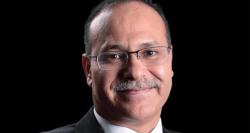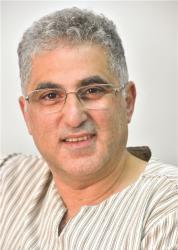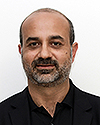

1:00 am AST - 2:30 am AST
Past Event
Content from the Brookings Doha Center is now archived. In September 2021, after 14 years of impactful partnership, Brookings and the Brookings Doha Center announced that they were ending their affiliation. The Brookings Doha Center is now the Middle East Council on Global Affairs, a separate public policy institution based in Qatar.
The Brookings Doha Center (BDC) hosted a panel discussion on January 30, 2019 to discuss the importance of think tanks in the Arab world. The panel explored the role that think tanks can play in helping policymakers in the Arab world to formulate and enact effective policies, by providing them with evidence-based analyses and recommendations. It also discussed the constraints that think tanks in the region face, including political environments that leave little space for independent thinking; a shortage of skills that can affect the quality of their output; and entrenched political norms that limit their influence over policymaking.
The panel comprised a group of distinguished researchers, including: Nader Kabbani, director of research at the BDC; Ezzeddine Abdelmoula, manager of research at Al Jazeera Center for Studies; Mahjoob Zweiri, director of the Gulf Studies Center at Qatar University; Sari Hanafi, professor at the American University of Beirut; and Mohammad Almasri, executive director of the Arab Center for Research and Policy Studies. Osman Ayfarah, presenter at Al Jazeera Media Network, moderated the event, which was attended by members of Doha’s diplomatic, academic, and media communities.
Nader Kabbani kicked off the discussion by presenting the BDC as an example of a MENA think tank that provides independent analysis of international relations, socioeconomic development, and governance. He noted that think tanks and research centers are important because they propose solutions to critical economic, social, and political issues and mediate between researchers and decision makers. Kabbani added that the region is weak in terms of knowledge production and public institutions, as well as in terms of decision makers using the knowledge produced by think tanks.
Ezzeddine Abdelmoula continued the discussion by explaining think tank rankings and defining the characteristics of effective research centers. He argued that think tanks and research centers based in the region sometimes produce better research than those based elsewhere, especially when it comes to research on MENA issues. However, Western think tanks and research centers tend to have more experience, having been established earlier. Abdelmoula also argued that research produced should be accessible via various platforms and encouraged think tanks to engage the public through regular publications, discussion sessions, and events.
Mahjoob Zweiri added that think tanks should focus on accelerating the production of ideas, rather than on politics. He urged think tanks to make their research available to governments as a way to promote progress and raise public awareness about relevant issues.
Mohammad Almasri emphasized that think tanks differ from research centers because the former focus on producing analysis, while the latter (which are largely affiliated with universities) focus on producing knowledge. He noted that think tanks originated in the United States and became prevalent after World War II. Almasri added that many research centers in the region are not financially independent, which affects the research they produce. Zweiri added that research centers and think tanks require a rich intellectual and political climate in order to flourish. He then pointed out that these institutions face challenges in the Arab world, as the process of knowledge production is often politicized by decision makers.
Sari Hanafi agreed that funding sources must be considered in evaluating the research produced by think tanks, as funding indicates what agendas these institutions might be implementing. He added that the lack of democracy in the region limits some think tanks, preventing them from producing objective research. Hanafi also said that there is not a high level of trust in the MENA region in think tanks and their importance to the decision-making process; to this effect, he called for more discourse and engagement.
The subsequent question and answer session focused on the nature, effectiveness, and future of think tanks in the MENA region. The panelists noted that MENA think tanks should work to engage in more dialogue with decision makers and among themselves. They also emphasized that decision makers in the region stand to benefit from considering the research and recommendations provided by think tanks.





Noha Aboueldahab
August 23, 2021

August 23, 2021

Yasmina Abouzzohour
August 19, 2021